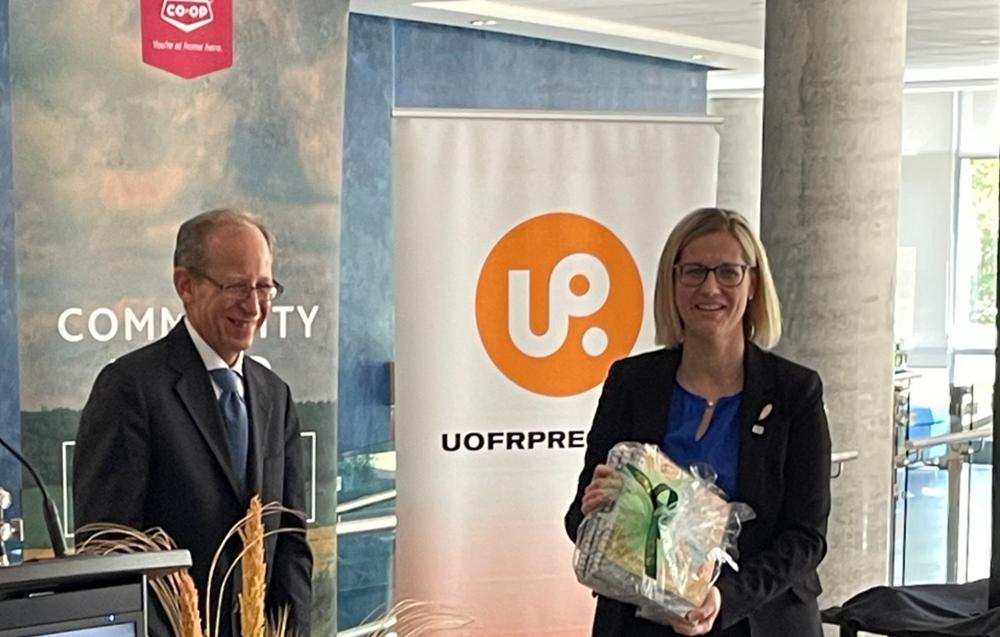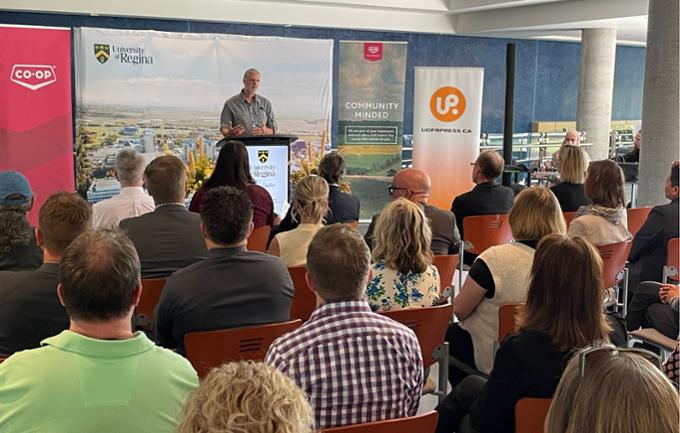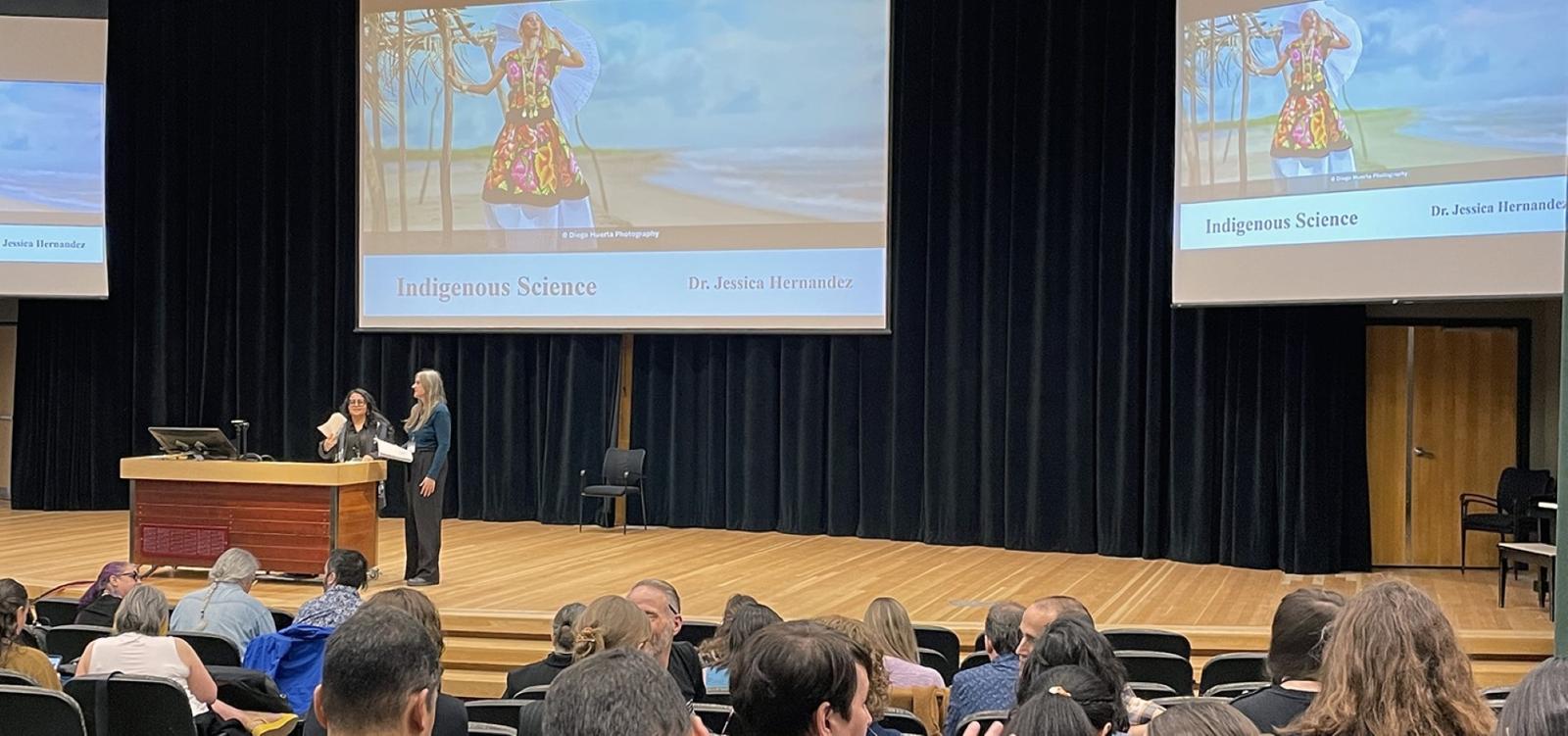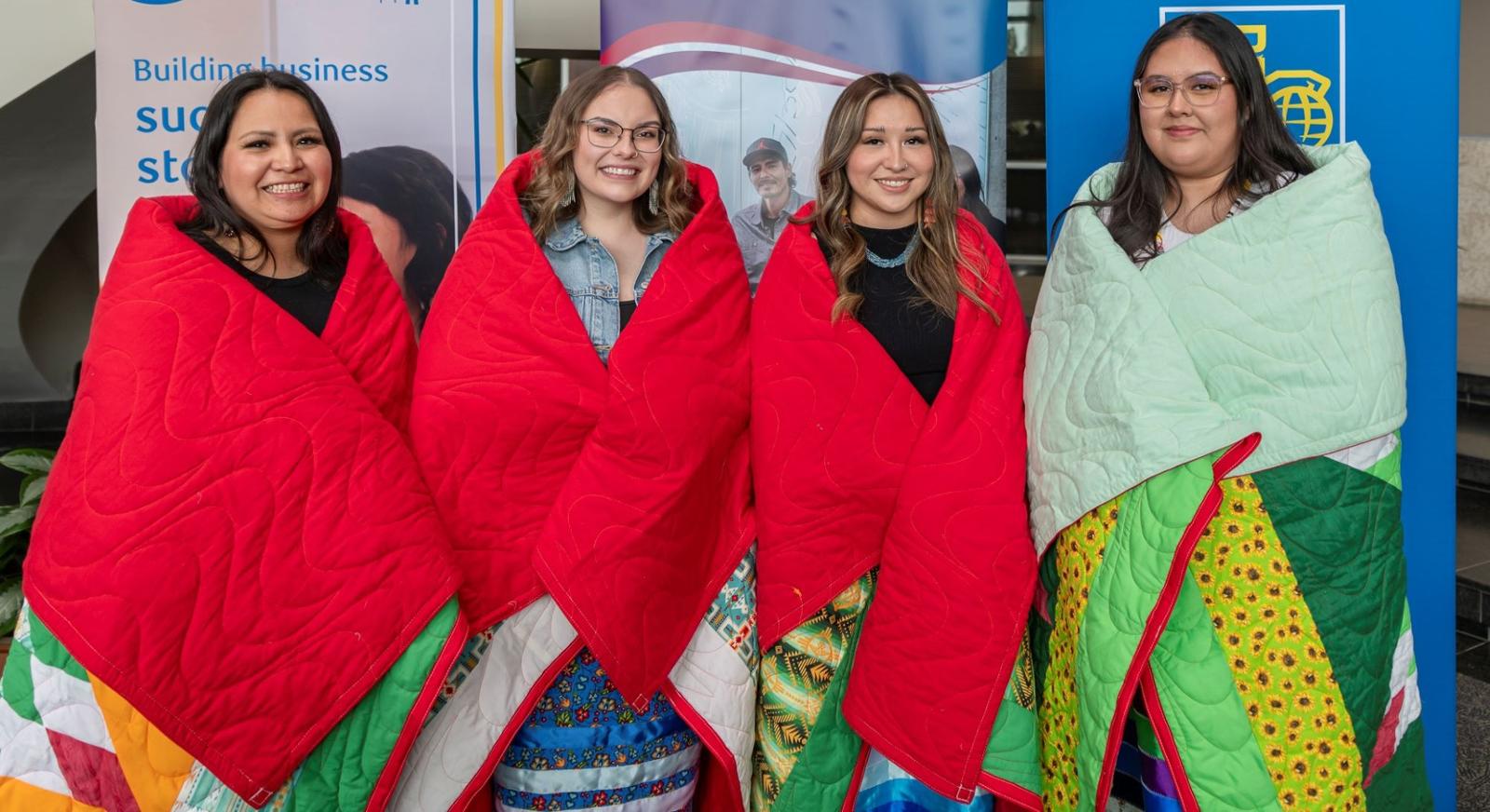The University of Regina Press has received a $125,000 gift from Federated Co-operatives Limited (FCL) and Co-ops across Western Canada to create textbooks and audio resources supporting the development of post-secondary Dakota and Dene language courses. The need for such materials is growing as more people in the province and elsewhere — both Indigenous and settlers — pursue learning the languages original to the territories encompassed in Saskatchewan.
"Dakota and Dene are each endangered languages to varying extents," said Dr. Arok Wolvengrey, University of Regina Press’s First Nations Language Reader series editor, and Professor, Algonquian Languages and Linguistics at First Nations University of Canada. “Having these resources allows our teachers to better instruct students and inspire new speakers.”

The gift will be received in installments over five years by the U of R Press, which is already a leader in publishing high-quality Indigenous studies and language resources including its catalogue of textbooks for the study of Cree, Nakoda, and Saulteaux languages.
Our shared commitment
“I’m excited that we are able to partner with Federated Co-operatives Limited on this vital and timely project,” said Jeff Keshen, President and Vice-Chancellor of the University of Regina. “The production of these resources – and their continued use by Indigenous and non-Indigenous students alike – will be a tangible expression of our shared commitment to advancing Indigenous ways of knowing at the University of Regina and beyond, now and for generations to come.”
Having these resources allows our teachers to better instruct students and inspire new speakers.
— Dr. Arok Wolvengrey, Professor, Algonquian Languages and Linguistics at First Nations University of Canada.
Federated Co-operatives Limited (FCL) and Co-ops across Western Canada’s decision to support the U of R Press’s Indigenous Publishing Program was a natural fit for the organization which signed on to the Saskatchewan Chamber of Commerce’s Indigenous Engagement Charter in 2020.
“We are striving to be leaders in the journey towards reconciliation,” said Heather Ryan, Federated Co-operatives Limited’s, CEO. “We are proud to be a partner in this important initiative and to support both the preservation and growth of Indigenous languages and culture.”
A lasting legacy
The University community and U of R Press are likewise confident that the resulting textbook and audio resources will leave a lasting legacy beyond the classroom. The University of Regina press is celebrating its tenth anniversary this year, and since its launch has been committed to publishing works on Indigenous studies, including the Governor General Award-winning Clearing the Plains by U of R Associate Professor Dr. James Daschuk, and the late Harold Johnson’s Firewater which was shortlisted for a Governor General’s Award in 2016. Since its founding, the Press has worked to support efforts to revitalize Indigenous languages through such projects as the First Nations Language Reader Series. The textbooks to be developed to support the study of Dakota and Dene languages will also be accompanied by audio resources to improve language apprehension and usage.
Learn how you can help support Indigenous publishing and language education in Saskatchewan.
“This work creates the conditions for a broader impact,” said Marcel DeCoste. “It can actually create communities, and build momentum through serving the communities who are revitalizing and reclaiming their languages. I think of the University's motto: As one who serves, and I definitely think that’s something that the U of R Press has always taken very seriously.”
Banner photo credit: University Advancement.
About the University of Regina
Set in the heart of the Canadian prairies we are a comprehensive, mid-sized university where the opportunities are as limitless as the horizon. Our campuses are on Treaty 4 and 6 - the territories of the nêhiyawak, Anihšināpēk, Dakota, Lakota, and Nakoda peoples, and the homeland of the Michif/Métis nation. It is our responsibility to strengthen relationships with Indigenous communities to build a more inclusive future for all. Our three federated colleges, 10 faculties, 25 academic departments, and 18 research centres foster innovative research with practical and theoretical applications. We are committed to cultivating the potential of our 16,000 students and supporting their health and well-being. We take learning beyond the classroom through work and volunteer experiences to develop career-ready graduates.
Let’s go far, together.




